Oct. 04 to Oct.10
The first China Airlines plane without an Republic of China (ROC) flag on its tail took flight from Taiwan on Oct 7, 1995. In place of the red, white and blue banner were today’s pink, ink brush-style plum blossoms; the change was reportedly made so that the airline could keep flying to Hong Kong after the 1997 handover to China.
There was no problem with the carrier’s name and flag when it was founded in 1959, but things changed in the early 1990s when Beijing had become powerful enough to exert international pressure against Taiwan’s planes flying the ROC flag. Having trouble negotiating direct flight routes with Beijing’s allies, China Airlines launched Mandarin Airlines in 1991 to handle politically sensitive routes such as Canada and Australia, who were China-friendly at the time.
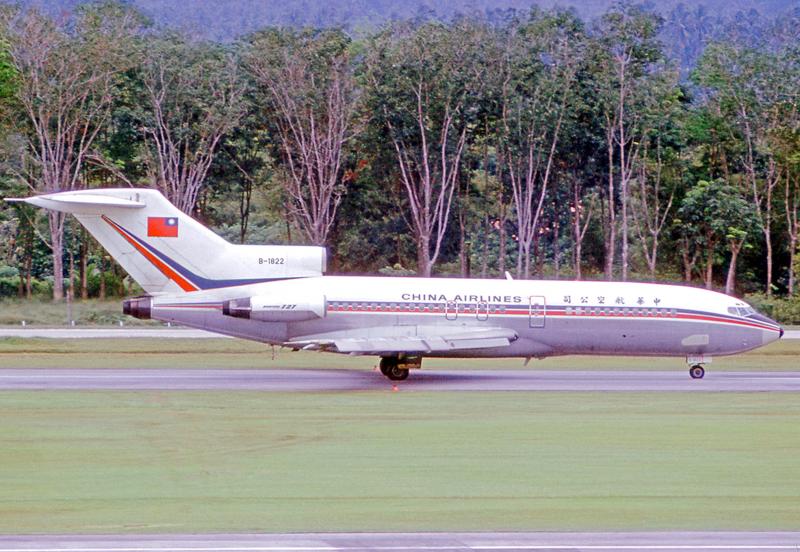
Photo courtesy of Wikimedia Commons
Amid fierce domestic competition after the lifting of martial law, it was imperative that China Airlines keep its direct flights to the regional transit hub of Hong Kong. Top brass at the airline, however, told the South China Morning Post that the change was purely cosmetic, an “image boost” after using the same design for 35 years. “No political significance.”
There have been calls to rename the airline since the mid-2000s due to the changing political landscape. Even today, the name still generates controversy, such as when a China Airlines plane donating COVID-19 prevention supplies to Europe last April was mistaken for being from China.
AVIATION BOOM
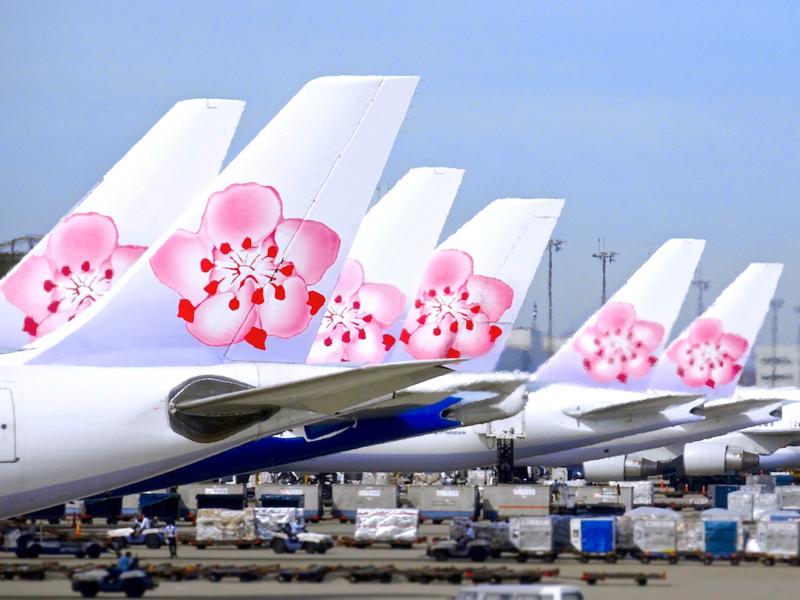
Photo courtesy of Wikimedia Commons
Since the Chinese Nationalist Party (KMT) still claimed to be the rightful ruler of China after its retreat to Taiwan in 1949, it was pretty standard for them to name a state-run enterprise after the lost motherland. Established in 1959, China Airlines made its first voyage in December from Taipei to Sun Moon Lake.
At first, the airline handled mostly charter flights and cargo deliveries. During the early 1960s, it was involved in military operations supporting the KMT’s anti-commmunist troops in Myanmar and delivering supplies to Laos for the Americans. The Vietnam War had spilled into Laos by then, but the US denied the existence of what would later be dubbed the “secret war.”
No new international carriers were allowed during the Martial Law era, so China Airlines’ only major competitor in the 1950s was Civil Air Transport, which was owned by the US Central Intelligence Agency. This carrier mainly supported the CIA’s regional operations, but also offered scheduled international passenger flights. It shut down operations after two deadly accidents in 1964 and 1968, and for the next 19 years, China Airlines had a monopoly over all international routes.
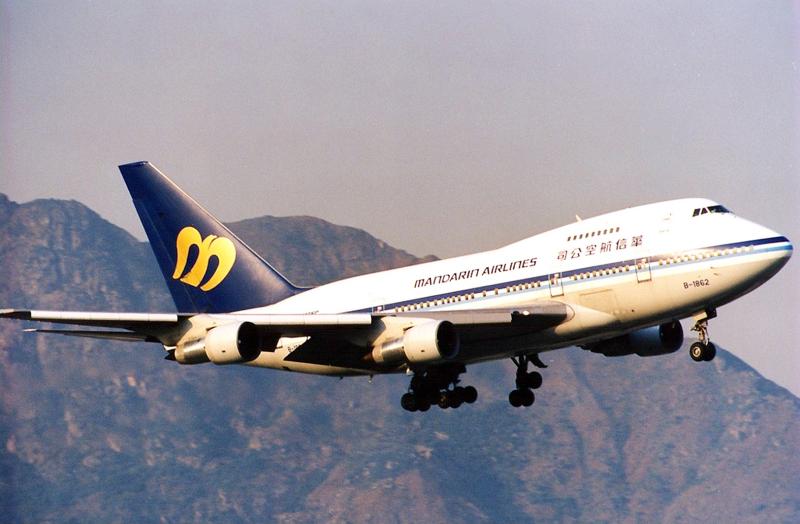
Photo courtesy of Wikimedia Commons
There were three domestic airlines around, including Formosa Airlines, which was established in 1966 for crop dusting and later served the outlying islands. The lifting of martial law in 1978 “opened up the skies,” as people said then, and competition quickly heated up. At the peak of this boom around 1996, the nation boasted 10 airlines. Four of them flew international.
“How can such a small place support so many airlines: surface distances are not great; and the most popular route by far, Taipei to Kaohsiung, is also served by a railway and a freeway that should allow a traveling time of just four hours,” a Taiwan Today writer muses.
The problem was that it rarely just took four hours. Congestion was terrible as car ownership grew faster than the roads could handle. Railways were at full capacity, and trains suffered from frequent delays and schedule changes.
“The result — uncomfortable, uncertain surface transportation, and an enthusiastic switch to air travel,” Taiwan Today states, noting that even the Taipei-Taichung route, which would be completely impractical to fly otherwise, was profitable. “People are still happy to fly, because of the reasonable certainty that by doing so they will arrive on time.”
CRASHING DOWN
This boom would not last long. Air fares kept rising, but the economy was slowing; meanwhile Taiwan significantly upgraded its highway and public transportation system. The fact that over 500 people died in seven plane accidents between 1993 and 1999 didn’t help. China had managed at first to keep foreign carriers from serving Taiwan, but by the 1990s many of them had established subsidiaries to sidestep the restrictions — this also increased competition.
In just six years, Taiwan’s aviation market had crashed, Taiwan Today reported in 2001. It added that the industry was “eagerly awaiting” the opening of direct flights between Taiwan and China — but that would take several more years to happen on a very limited basis.
Without direct flights, it was imperative that China Airlines hold on to its flights to Hong Kong, which was the transit hub to most Chinese destinations. Despite the airline’s claims that the move was nonpolitical, Taiwan Today was not oblivious to the symbolism of the logo change, calling it a replacement of “the provocative ROC flag with an innocent plum blossom.”
According to a Civil Aeronautics Administration textbook on air traffic rights, Beijing’s requests toward Taiwan for direct flights to Chinese allies included: “No official contact, no signing of any official documents and no national carriers; the Chinese government should be notified before each flight,” and finally, “no display of any text or imagery that represents a country.”
The image change, however, made Mandarin Airlines’ role obsolete, and it gradually handed over its long-haul routes while taking over its parent company’s regional and domestic ones.
Mandarin Airlines merged with Formosa Airlines in 1999 and was one of six airlines that applied in 2003 to the Lunar New Year charter flights between Shanghai and Taipei for Taiwanese merchants. Today it still serves a number of Chinese destinations.
Taiwan in Time, a column about Taiwan’s history that is published every Sunday, spotlights important or interesting events around the nation that either have anniversaries this week or are tied to current events.
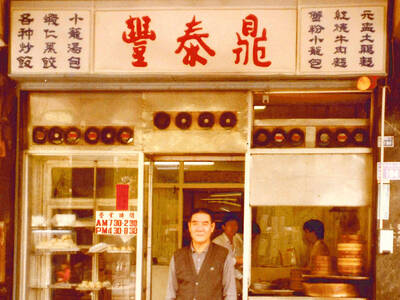
March 24 to March 30 When Yang Bing-yi (楊秉彝) needed a name for his new cooking oil shop in 1958, he first thought of honoring his previous employer, Heng Tai Fung (恆泰豐). The owner, Wang Yi-fu (王伊夫), had taken care of him over the previous 10 years, shortly after the native of Shanxi Province arrived in Taiwan in 1948 as a penniless 21 year old. His oil supplier was called Din Mei (鼎美), so he simply combined the names. Over the next decade, Yang and his wife Lai Pen-mei (賴盆妹) built up a booming business delivering oil to shops and
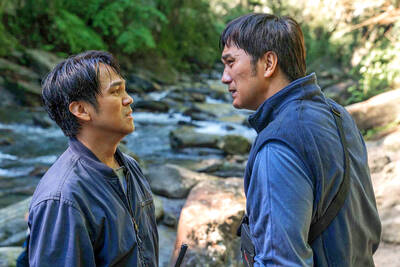
Indigenous Truku doctor Yuci (Bokeh Kosang), who resents his father for forcing him to learn their traditional way of life, clashes head to head in this film with his younger brother Siring (Umin Boya), who just wants to live off the land like his ancestors did. Hunter Brothers (獵人兄弟) opens with Yuci as the man of the hour as the village celebrates him getting into medical school, but then his father (Nolay Piho) wakes the brothers up in the middle of the night to go hunting. Siring is eager, but Yuci isn’t. Their mother (Ibix Buyang) begs her husband to let

The Taipei Times last week reported that the Control Yuan said it had been “left with no choice” but to ask the Constitutional Court to rule on the constitutionality of the central government budget, which left it without a budget. Lost in the outrage over the cuts to defense and to the Constitutional Court were the cuts to the Control Yuan, whose operating budget was slashed by 96 percent. It is unable even to pay its utility bills, and in the press conference it convened on the issue, said that its department directors were paying out of pocket for gasoline

On March 13 President William Lai (賴清德) gave a national security speech noting the 20th year since the passing of China’s Anti-Secession Law (反分裂國家法) in March 2005 that laid the legal groundwork for an invasion of Taiwan. That law, and other subsequent ones, are merely political theater created by the Chinese Communist Party (CCP) to have something to point to so they can claim “we have to do it, it is the law.” The president’s speech was somber and said: “By its actions, China already satisfies the definition of a ‘foreign hostile force’ as provided in the Anti-Infiltration Act, which unlike